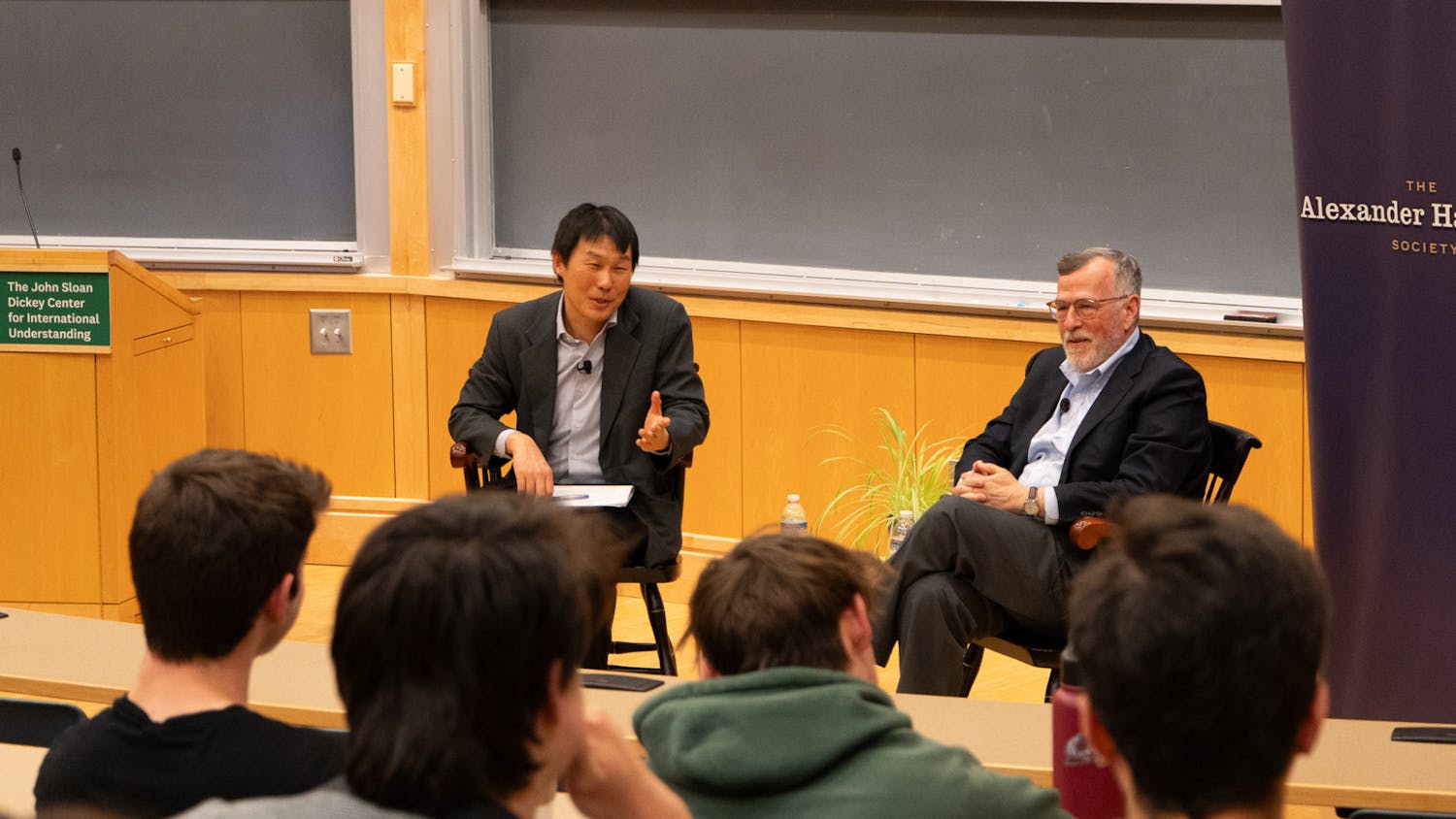Shortly before Christmas, the “Dartmouth Memes For Cold AF Teens” Facebook group started to buzz with memes about receiving three citations for the fall term. Such animation came from a series of emails sent by the undergraduate deans office on Dec. 20, originally congratulating students for receiving citations, but later asking students to disregard the congratulatory emails.
Christine Dong ’19 received six emails from the undergraduate deans office — three of them congratulating her on obtaining three citations for the three classes she took last term and three telling her to disregard the previous emails.
According to the ORC/Catalog, citations are issued to students who “have made particularly favorable impressions on members of the faculty.” According to a 2017 article by The Dartmouth, citations comprise only 2.4 percent of total grades.
Dong said she was originally confused about the emails.
“I don’t think I remember having a term when I got three citations for all of my classes, so I was confused,” she said. “I thought it was probably a glitch.”
Behind the batches of puzzling emails was a clerical error made by the undergraduate deans office, according to Brian Reed, associate dean for student academic support services and dean of undergraduate students. Reed explained that when the office sent the congratulatory emails this year, the undergraduate deans office did not filter appropriately in the data warehouse that it uses to communicate with Banner — the College’s student information system — on the back end. Therefore, both students who did and did not obtain citations last term received the emails.
Reed explained that after professors uploaded final grades and the Registrar’s office finished grade registration, the undergraduate deans office pulled the grades data from Banner into the data warehouse and downloaded the data into an Excel file. The office then conducted a mail merge from the Excel file into Outlook, where congratulatory emails for citations were generated from the undergraduate deans office’s account.
“Normally, under the best conditions, we scrub — or eliminate — all the students who didn’t get citations for the course,” Reed said. “We accidentally left them on this time, so it was everybody.”
According to Reed, approximately 12,000 emails about citations were sent to the College’s enrolled students.
“I think what I remember was that everybody got three citation emails from us saying congratulations,” he said.
Reed noted that the undergraduate deans office is in charge of sending emails congratulating students about citations after grades are finalized for the term.
“What my office does is part of, but actually unrelated to, the grade,” he said. “What we do is, we send these letters of congratulations, and we’ve always seen it as a great opportunity to [reach out to] students.”
Reed said the undergraduate deans office realized its mistake when it and the Registrar’s office were contacted by students. He added that after his office conducted a diagnosis and confirmed its error, it first sent out disregard emails to all enrolled students before re-sending emails to students who actually received citations last term.
“I think we had most — if not all — of it cleaned up by the Thursday or Friday before the College closed,” Reed said.
However, not all students received six emails like Dong did. Sue Mohieldin ’19 said she only received the disregard emails but not the initial congratulatory emails.
“For me, I just got the apology emails, so that was even weirder,” Mohieldin said.
Reed pointed out that the undergraduate deans office’s system crashed because it tried to send out too many emails, which potentially explained why different students received different numbers of emails.
“What may have happened — we haven’t done the diagnosis on this — was [the system] might have crashed in the middle of sending [the first round of emails] out, but didn’t crash when we were sending out the disregard [emails],” he said.
Mohieldin noted that this mistake that was “altogether confusing” and “a bit funny” could have been frustrating for some students.
“I think it’s kind of disappointing when you think you did do well on a class and you think you did get a citation, but end up not having it,” she said.
Reed said he understands the impact of the clerical mistake.
“We apologize profusely for any frustration or hurt that we might have caused,” he said. “I hope people would still see us as a reliable resource.”
Reed said that the clerical mistake would not affect students’ grades.
“There would be no implication for the transcript for anybody,” he said. “This is, for all intents and purposes — from an administrative or clerical perspective — fixed.”



